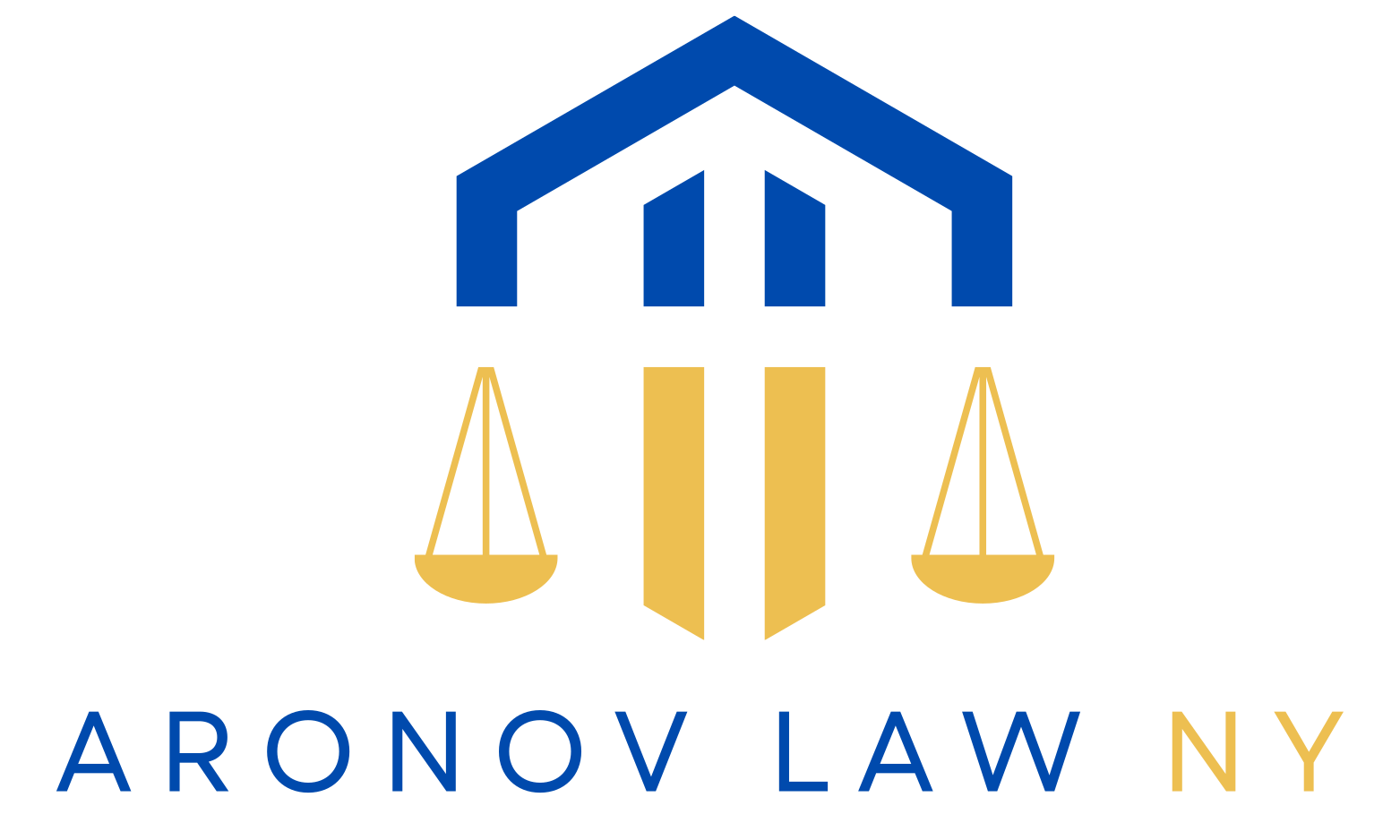Legal Implications In NY: Real Estate Broker Vs Sales Person
Do you have a penchant for Real Estate? Do you live in New York State and are pondering a career as a New York State Real Estate Broker or Salesperson? There are intense educational and legal requirements for both. Moreover, every New York State Real Estate Broker and Salesperson is duty bound to strictly adhere to the Code of Ethics.
Find the Code of Ethics here: https://www.nar.realtor/code-of-ethics-and-arbitration-manual
Still interested? Read on . . . .
The path to becoming a Real Estate Broker or Salesperson in New York State involves certain educational prerequisites and the successful completion of licensing exams. A salesperson must complete a qualifying course specifically designed for the Real Estate Salesperson. Conversely, Brokers have more stringent education requirements and need to demonstrate experience in the Real Estate industry. A Real Estate Salesperson operates under a brokerage, while a Broker can own and/or manage a brokerage.
What Is The Difference Between A Real Estate Salesperson Versus A Broker In New York?
In New York, a Real Estate Salesperson works under a supervising Broker and is the initial point of contact for clients in property transactions. A prospective salesperson must complete the full 77-hour pre-licensing course and pass a State Exam.
A Real Estate Broker has undertaken additional education, typically a minimum of 120 hours of coursework, and has passed the more complex and comprehensive State Broker’s Exam.
Want to Become a Real Estate Salesperson in New York?
You must be at least 18 years old, complete the 77-hour pre-licensing course, and pass the Salesperson’s State Exam.
Thinking of Becoming a New York Real Estate Broker?
First you must already be a licensed New York Real Estate Salesperson with at least two years of experience, and then . . . undertake 120 additional hours of education, and pass the New York Broker’s State Exam.
Responsibilities:
- Salesperson: Works with clients on buying, selling, and renting properties but must do so under the authority of a licensed Broker.
- Broker: Can operate their own Real Estate business or manage a brokerage, and employ Salespersons. They handle more complex transactions and have a greater level of legal responsibility.
Both Brokers and Salespersons have myriad duties to their clients. For full details follow the link below.
https://www.nysar.com/about-nysar/code-of-ethics/#clients
What Is the Difference between a Real Estate Agent and Salesperson?
In New York, a Real Estate Salesperson is often referred to as a Real Estate Agent, they both facilitate Real Estate transactions. They are licensed representatives of buyers and/or sellers in the sale, lease, or rental of property.
They are responsible for listing properties, marketing them effectively, and negotiating deals. They must operate under the supervision of a licensed Real Estate Broker.
The New York Department of State oversees the licensing of the Real Estate Salesperson to ensure they meet the required educational and ethical standards. A Salesperson’s ability to successfully market properties involves understanding the target demographic, effective use of advertising tools, and leveraging online platforms. They earn their income through commissions, usually a percentage of the property’s sale price and serve as the navigators, guiding clients through the often complex journey of buying, selling, or renting property.
Who Represents Whom?
- Buyer’s Salesperson: As you might guess, a buyer’s Salesperson represents the party purchasing property. Their job is to find listings that meet your needs, arrange showings, and help you through the purchasing process.
- Seller’s Salesperson: Conversely, if you’re looking to sell, a seller’s Salesperson is your advocate. They assist with pricing your property, marketing it, and negotiating with potential buyers on your behalf.
- Dual Salesperson: A dual agent acts for both the buyer and the seller in the same transaction. While this can streamline communication, remember that their impartiality is critical since they must not favor one party over the other.
Levels of Licensure
- Real Estate Salesperson: This is your starting point in New York Real Estate. Salespersons must operate under a licensed Broker and cannot work independently.
- Associate Real Estate Broker: After gaining experience, a salesperson can become an Associate Broker. These individuals have Broker’s licenses but choose to work under another Broker rather than heading their own office.
What Is A Real Estate Broker?
In New York, a Real Estate Broker plays a pivotal role in the property market. Unlike a Real Estate Salesperson, Brokers have additional responsibilities and autonomy. To become a New York State Real Estate Broker, you must navigate through stringent licensing requirements that involve in-depth knowledge of Real Estate law and significant experience in the industry.
Brokers are authorized to own and manage a brokerage, which entails supervising Real Estate Salesperson and ensuring all transactions comply with state laws. They facilitate the buying, selling, leasing, and renting of properties, and they may also handle property management.
Key Responsibilities:
- Overseeing Real Estate transactions
- Managing a team of Salespersons
- Ensuring compliance with New York Real Estate law
Brokers in New York have the flexibility to work independently or employ other Salespersons and Brokers. Pursuing education through online platforms, such as a fully online Real Estate school, can be a viable path to acquiring the knowledge necessary for this career.
Qualifications:
- Extensive industry experience
- Completion of advanced Real Estate coursework
- Passing a state-administered licensing examination
To sum up, if you’re considering a step up from Salesperson to Broker in New York, be prepared to undertake additional duties, from transaction oversight to team management, all while ensuring strict adherence to the laws governing Real Estate.
Who’s The Boss?
Becoming a Real Estate Broker offers you distinctive advantages, from higher earning potential to entrepreneurial opportunities. As a licensed Real Estate Broker in New York, you have the capability to run your own brokerage and be your own boss. This career advancement opens doors to management and leadership roles within the Real Estate sector. You’re no longer following set policies . . . you’re creating them.
What About Tax Breaks? Are there any?
By establishing your own brokerage, you can take advantage of significant tax breaks and benefits. You will most likely be able to write off business expenses, such as a home office, business travel, and marketing expenses, allowing you to optimize your earnings and minimize your taxable income.
Earn More
In terms of salary, a Real Estate Broker in New York typically earns more than a Salesperson. With the added responsibility, your commission rates and salary expectations can exceed the average national salary of Real Estate professionals substantially. By recruiting agents to work under your brokerage, you can further increase your earnings through their sales, amplifying your income potential.
Real Estate Broker Types
In New York’s dynamic Real Estate Market, understanding the types of Real Estate Brokers can guide your professional interactions.
Managing Brokers have the authority to oversee the daily operations of a Real Estate office. They ensure compliance with state and national Real Estate laws, and often guide a team of agents and other brokers.
A Principal Broker is similar to a Managing Broker but is often the main broker of a Real Estate firm, holding the ultimate responsibility for legal documents and transactions.
The Sponsoring Broker is the licensed broker who sponsors a Real Estate Salesperson until they obtain their broker’s license. They provide mentorship and support to salespersons.These roles are critical in the structure of a Real Estate business in New York.
Whether you opt for being an Real Estate Salesperson or a Real Estate Broker, ongoing education is essential.
How Long Does It Take to Become a Real Estate Broker?
To become a Real Estate broker in New York, you need to go through a series of steps that require education, exam, and New York Real Estate experience. The timeframe to complete these steps varies significantly based on individual circumstances.
How does the compensation structure differ for Real Estate Salespersons compared to Brokers?
Real Estate Salespersons typically earn commission-based income from the transactions they facilitate but must split their earnings with their employing Brokers. Brokers on the other hand, earn a portion of their Salespersons’ commissions, in addition to profits from their own deals and services.
In New York, is it Legal to act as your own Real Estate Salesperson, and what are the limitations if any?
You can act as your own Real Estate Agent in New York if you’re selling or buying your own property. But! You need to know that New York Real Estate laws and the documents required for buying and selling Real Estate in New York are complex and the process, especially as someone with little or no experience, can be lengthy and cumbersome. As with all legal transactions, especially when large sums of your money are involved, it is best to rely on the services of licensed professionals.
Glean a wealth of information at NYSR.com, link below.
Open the door to a new career . . . become a New York State Realtor.
Map & Directions To Our Real Estate Law Offices


Free Legal Consultation
98-14 Queens Blvd
